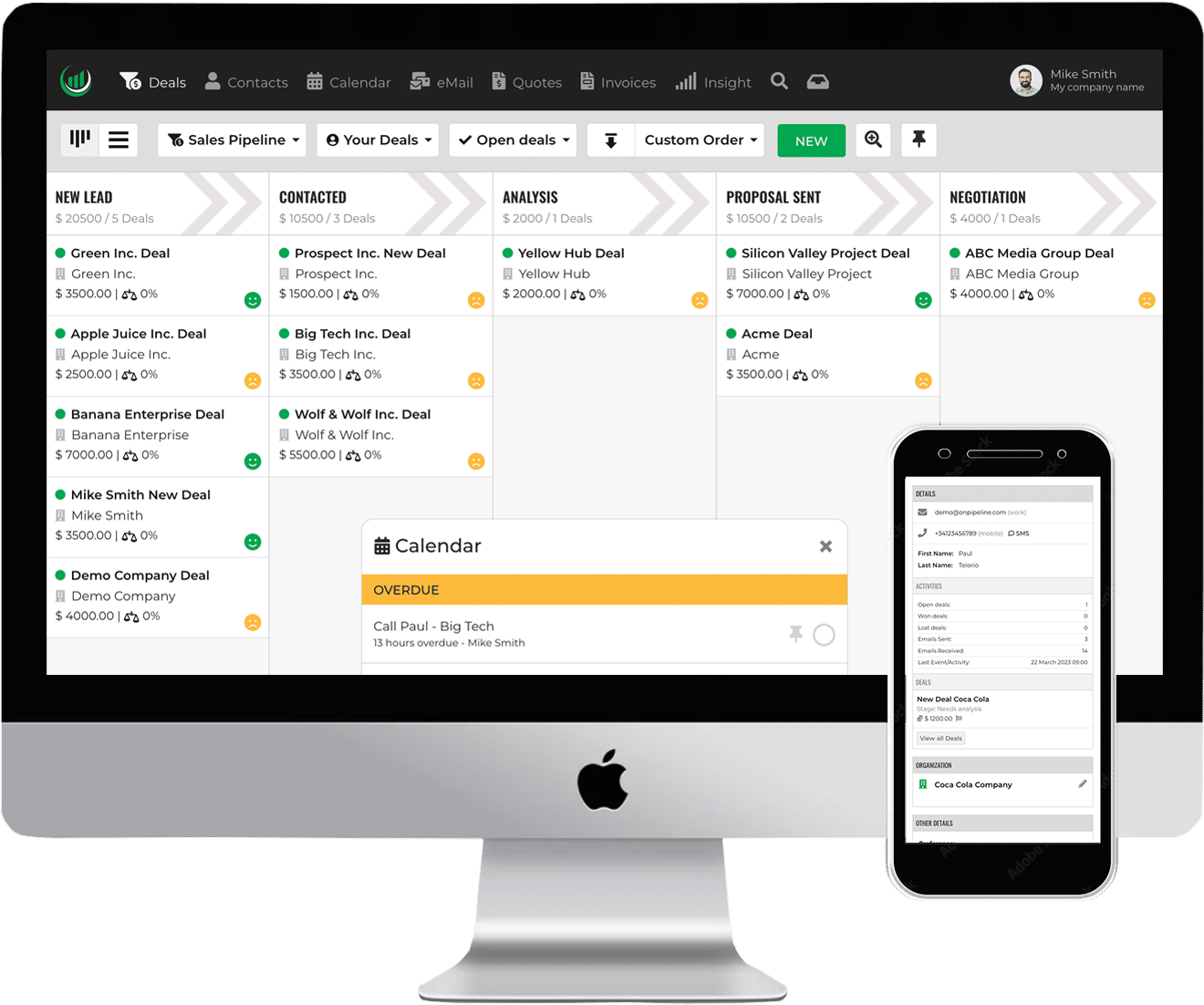In this article, we will see some of the most common sales objections and provide you with strategies to overcome them.
Additionally, you might find it valuable to read 10 Best Sales Techniques
Advantages of using a CRM
You can use a CRM tool to manage objections as it allows you to have access to the customer’s history and previous conversations. This information can be invaluable when dealing with objections, as it provides context and helps you understand the customer’s needs and concerns.
With a CRM, you can quickly review previous interactions, notes, and comments to refresh your memory and tailor your approach to the customer’s specific situation.
Additionally, a CRM can help you track and monitor objections, so you can identify patterns and develop strategies to address them more effectively in the future. Overall, using a CRM can improve your ability to manage objections and build stronger relationships with your customers.
Sales objections can arise at any stage in your sales pipeline. Here are some of the most common sales objections and potential solutions:
1. Price objection
The most common objection that salespeople hear is that the price is too high.
Possible solution → Understand your customer’s needs and show them the value of your product or service. Explain how your product or service will solve their problem and save them money in the long run. You can also offer discounts or payment plans to make the purchase more affordable.
2. Timing objection
Timing objections occur when a customer is not ready to buy at that moment. They may say they need to think about it or that they will come back later.
Possible solution → You need to find out why they are hesitant and address their concerns. Ask them if there is anything they need to know before making a decision, and offer to follow up with them at a later date.
3. Competition objection
Customers may compare your product or service to that of your competitors.
Possible solution → You need to be knowledgeable about your competitors and highlight what makes your product or service unique. Explain why your product or service is a better fit for their needs and how it offers more value than the competition.
4. Authority objection
Sometimes, customers may say that they need to consult with someone else before making a decision.
Possible solution → Find out who the decision-makers are and involve them in the sales process. Offer to set up a meeting or conference call to discuss the product or service with all the decision-makers.
5. Need objection
Customers may say that they don’t need your product or service.
Possible solution → Ask questions to understand their needs and pain points. Once you understand their needs, you can explain how your product or service can help them solve their problems.
6. Trust objection
Customers may be hesitant to buy from you because they don’t trust you or your company.
Possible solution → You need to build a relationship with the customer and establish trust. Share customer testimonials or case studies to show that your product or service has helped others in similar situations.
7. Silence objection
Sometimes, customers may remain silent or non-responsive during the sales process.
Possible solution → Ask open-ended questions that encourage them to share their thoughts and feelings. You can also use silence strategically to give the customer time to think and respond.
8. Feature objection
Customers may focus too much on the features of your product or service, rather than the benefits.
Possible solution → You can shift the conversation towards the benefits of your product or service and how it can help the customer solve their problems or achieve their goals.
9. Risk objection
Customers may be hesitant to take a risk and make a purchase.
Possible solution → Offer a guarantee or trial period that reduces the customer’s risk. You can also share success stories or case studies that show how your product or service has helped others in similar situations.
10. Urgency objection
Customers may not feel a sense of urgency to make a purchase.
Possible solution → You can create a sense of urgency by highlighting the benefits of acting now and the consequences of delaying the purchase. You can also offer limited-time discounts or bonuses to encourage the customer to take action.
An Example
A software salesperson was talking to a potential customer who was interested in their product but was hesitant to purchase because they were unsure about the security of the software. The salesperson listened to the customer’s concerns and explained how their product was secure and had been independently verified by a third-party security company.
Despite this, the customer was still unsure and said they needed more information before making a decision. The salesperson then sent the customer a link to an article written by the third-party security company that confirmed the security of their software.
The customer was impressed by the article and the independent verification of the software’s security. They were convinced that the software was secure and made the purchase. By using a link to provide additional information and address the customer’s concerns, the salesperson was able to overcome the objection and close the deal.
In conclusion
By using these strategies, salespeople can overcome a wider range of objections and increase their chances of closing more deals. It’s important to remember that objections are an opportunity to listen to your customers’ concerns and provide solutions that meet their needs. With the right mindset and approach, objections can be a valuable tool for building trust and strengthening relationships with your customers.
Objections are a natural part of the sales process, and they provide an opportunity for you to address any concerns your customers may have and close the deal. By understanding your customer’s needs and concerns, you can provide solutions that will help them see the value of your product or service.



